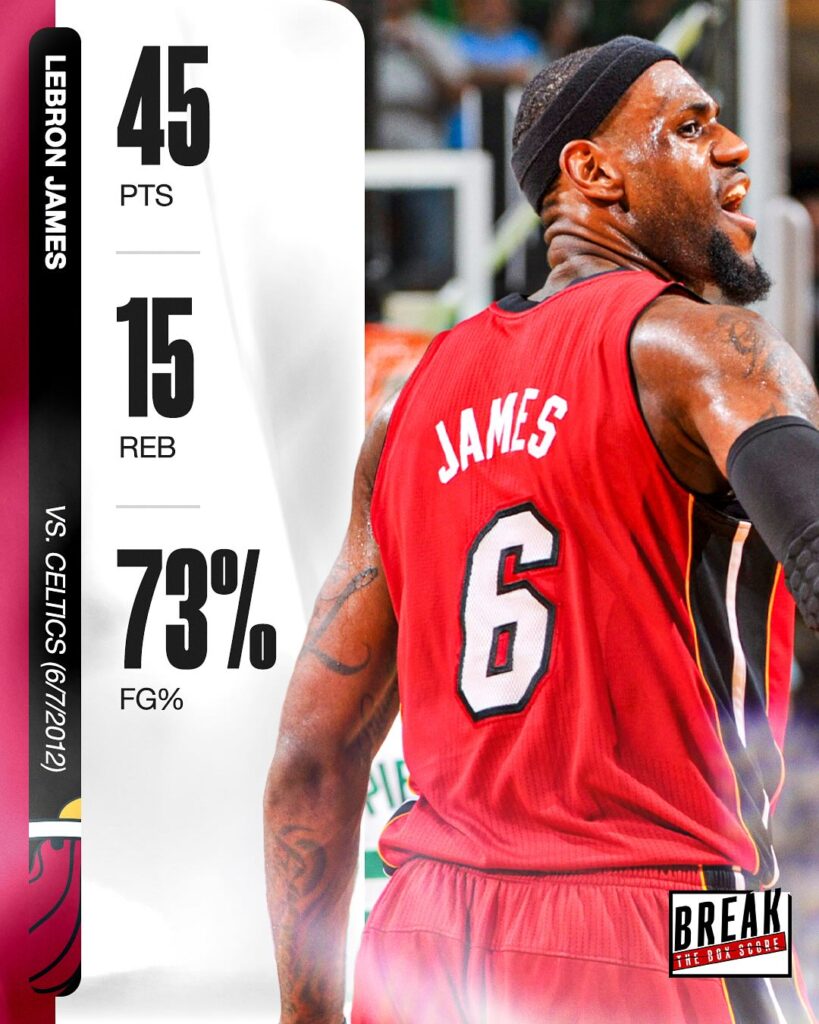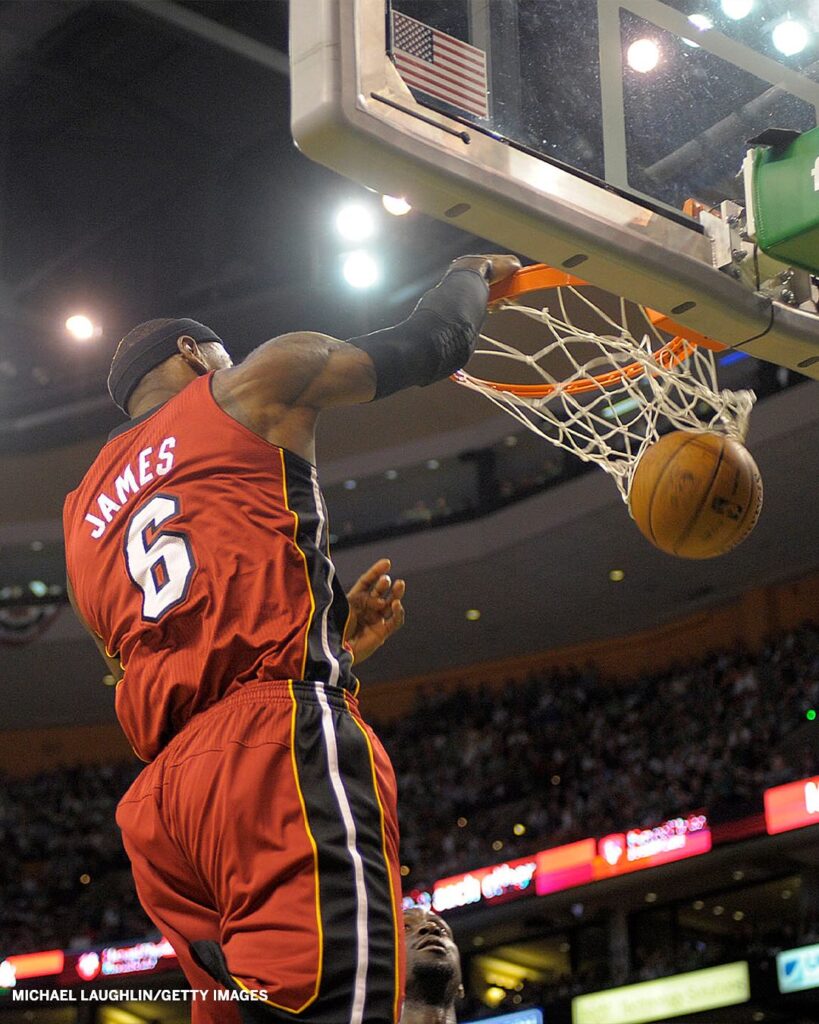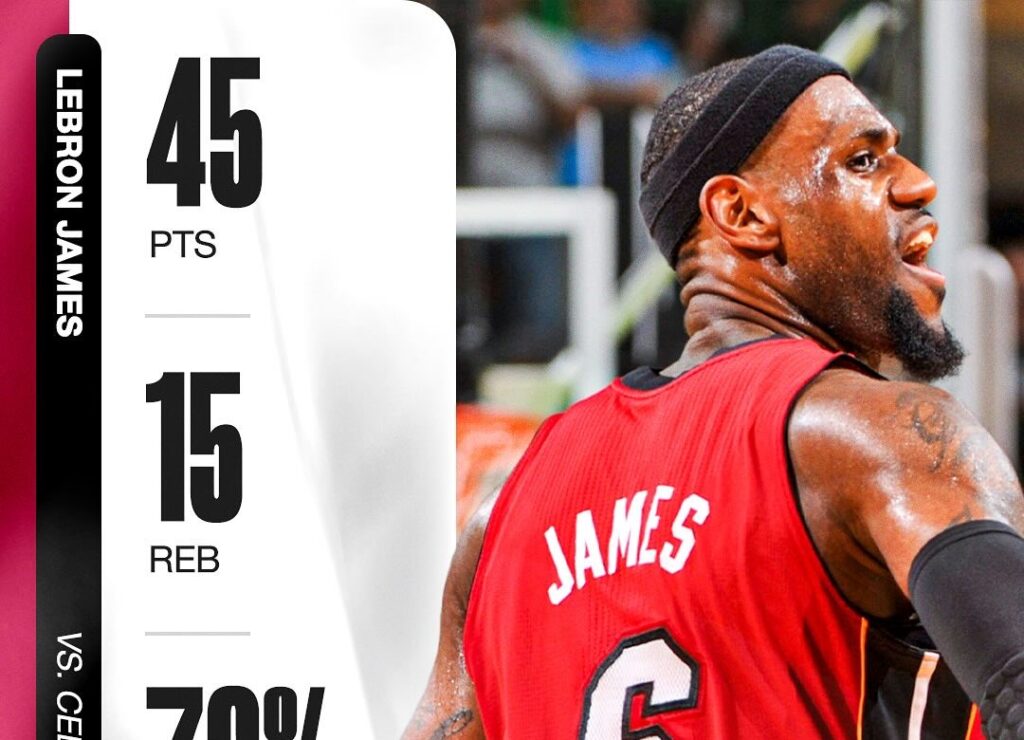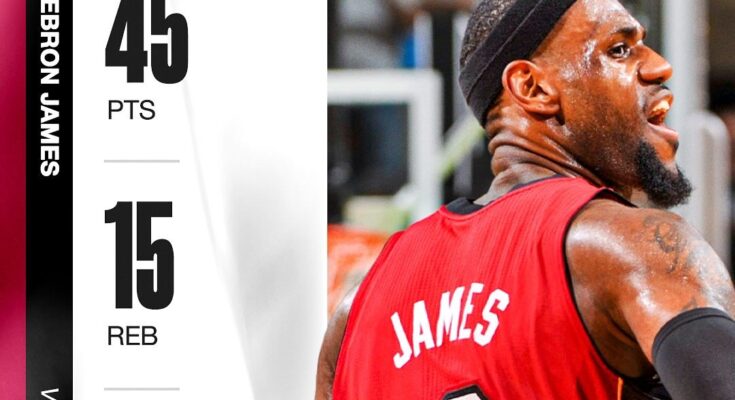
Thirteen years ago, on June 7, 2012, inside the hallowed halls of TD Garden in Boston, LeBron James faced the most pivotal game of his career. With the Miami Heat on the brink of elimination in the Eastern Conference Finals, trailing the Boston Celtics 3-2 in the series, James stepped onto the court with a burden far heavier than a standard playoff game. This was legacy-defining. It was a test of greatness, mental toughness, and championship DNA.
The game was more than just a clash of basketball titans—it was the culmination of years of narrative, criticism, and expectation. LeBron had already claimed three MVP trophies. He was widely regarded as the most gifted player of his generation. Yet, the criticism remained relentless. After a stunning collapse in the 2011 NBA Finals against the Dallas Mavericks, many questioned whether James had the killer instinct required to win a title. His decision to leave Cleveland and form a superteam in Miami only intensified the scrutiny. He was under the microscope, and this game felt like a final exam.
Boston’s Veteran Core: A Formidable Foe
To make matters even more intense, the Heat weren’t just facing any team. The Celtics, led by Paul Pierce, Kevin Garnett, Ray Allen, and Rajon Rondo, were battle-tested champions who had already beaten LeBron in two previous postseasons—once in 2008 and again in 2010. This Boston team was older, but still dangerous and brimming with confidence. Their Game 5 win in Miami had stolen momentum, and returning home for Game 6 gave them the perfect opportunity to close out the series and end Miami’s title hopes.
The crowd in TD Garden was loud, hostile, and energized, ready to see their team knock out the heavily favored Heat and push LeBron deeper into the shadow of doubt.
A Silent, Stoic LeBron Shows Up

From the opening tip, something was different about LeBron James. His expression was ice-cold. No smiles. No taunting. Just a blank stare and a calm demeanor that signaled a man on a mission.
LeBron exploded out of the gates, scoring at will in the first quarter. He was surgical in his attack—pull-up jumpers, powerful drives to the basket, fadeaways, post moves. He dropped 14 points in the first quarter and followed it up with 16 more in the second. At halftime, he had already tallied 30 points on an absurd 12-of-14 shooting.
The Celtics, known for their elite team defense, had no answers. They rotated defenders—Pierce, Garnett, even Rondo—but nothing worked. LeBron was in a different zone.
He finished the game with 45 points, 15 rebounds, and 5 assists, shooting 19-of-26 from the field. The performance was not just statistically remarkable—it was emotionally deflating for the Celtics and spiritually awakening for the Heat. His dominance wasn’t loud or flashy. It was clinical, merciless, and unrelenting.
Silencing the Doubters
That night in Boston wasn’t just about avoiding elimination—it was about redemption.
For years, the biggest knock on LeBron had been that he shrank in the biggest moments. But this was the exact opposite. With everything on the line—his reputation, his team’s season, and perhaps even the future of Miami’s Big Three—LeBron delivered one of the greatest playoff performances in NBA history.
It wasn’t just the numbers. It was the timing, the magnitude, and the psychological control he exerted over the game. He demoralized Boston. The TD Garden crowd went from electric to stunned silence. The Celtics’ confidence evaporated possession by possession. The Heat won 98-79 in a game that will forever be remembered for one man’s sheer willpower and dominance.
Aftermath and Legacy
The Heat would return home for Game 7 and win the series, and then go on to defeat the young, talented Oklahoma City Thunder in the NBA Finals. LeBron was named Finals MVP, earning his first championship ring and shedding the “can’t win the big one” label for good.
But make no mistake: it was Game 6 in Boston that changed everything.
That single game became the inflection point in LeBron’s career. From that night forward, he would go on to win four NBA titles (as of 2025), become the league’s all-time leading scorer, and continue building a legacy as one of the greatest—if not the greatest—player to ever step on a basketball court.
Players like Kobe Bryant, Michael Jordan, and Magic Johnson have had their defining playoff moments—games that encapsulate their greatness. For LeBron James, Game 6 in Boston is that moment. It was the night when talent met pressure, when criticism met resolve, and when the King finally claimed his throne.
Thirteen Years Later, the Echo Remains

Even now, over a decade later, basketball fans still remember where they were when LeBron lit up the Garden. That game has been immortalized in highlight reels, documentaries, and social media retrospectives. It gets replayed every postseason as a symbol of what true greatness looks like under fire.
In an era where narratives shift quickly and greatness is often debated in real time, LeBron’s 45-15-5 game remains a touchstone of excellence. It wasn’t just about basketball—it was about character, resilience, and proving, once and for all, that when the stakes are at their highest, true legends rise above.
Thirteen years ago, LeBron James didn’t just win a game. He authored a masterpiece—and the echoes of that night still resonate.



